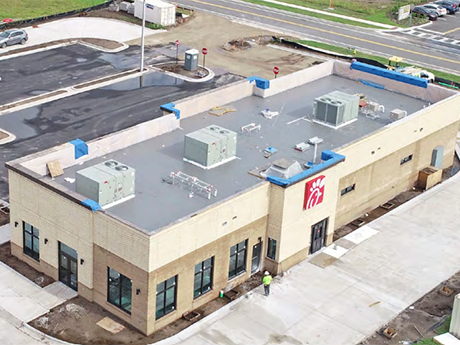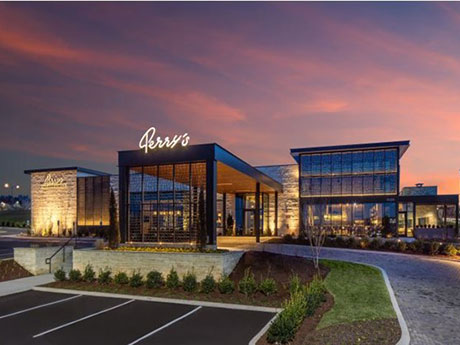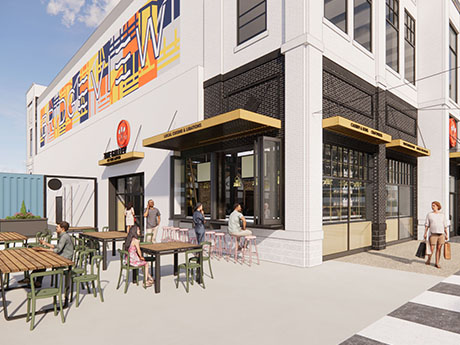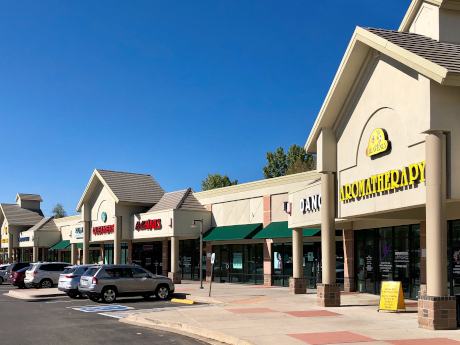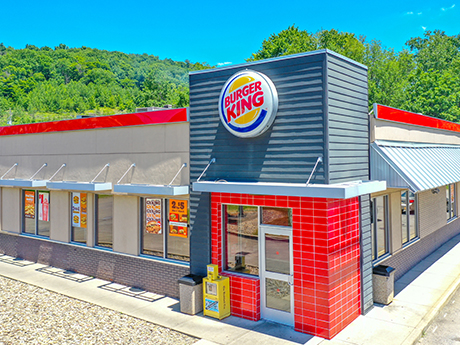WEBSTER, TEXAS — Kimco Realty, a New York-based REIT, has negotiated two food-and-beverage leases with Kura Sushi, a technology-enabled Japanese restaurant, and specialty meat concept Wild Fork at The Shops at Baybrook. The leases respectively total 3,848 and 4,700 square feet. The center is under construction in the southeastern Houston suburb of Webster. Hannah Tosch, Wade Greene, Cody Persyn and Kimberly Lenardson of Colliers represented Kimco in the lease negotiations. Opening dates have not yet been established.
Restaurant
Progressive Real Estate Partners Negotiates $4.5M Sale of Multi-Tenant Retail Property in Carlsbad, California
by Amy Works
CARLSBAD, CALIF. — Progressive Real Estate Partners has arranged the sale of a multi-tenant retail center located at 711 Grand Ave. in Carlsbad. A New York-based private investor sold the asset to a San Diego-based private investor for $4.5 million, or $976 per square foot. Built in 2019, the 4,584-square-foot property is fully leased to three tenants: Harumana Noodles + Buns, Village Optical and The Shop Salon, all of which are on triple-net leases. Mike Lin of Progressive Real Estate Partners represented the seller, while Josh Simms and Ryan King of Voit Real Estate Services represented the buyer in the transaction.
WEBSTER, TEXAS — Chicken N Pickle, an entertainment concept that combines pickleball with food, drink and other games, will open a 42,000-square-foot venue in Webster, a southeastern suburb of Houston. The venue will be located within the 80-acre Flyway development and will feature multiple bars, beer gardens and indoor and outdoor dining spaces. The opening is slated for late 2023. A 532-room Great Wolf Resorts hotel is also under construction at the Flyway.
LUTZ, FLA. — SRS Real Estate Partners has arranged the sale of a 4,854-square-foot, single-tenant retail building in Lutz, approximately 15 miles north of Tampa. Chick-fil-A occupies the property via a ground lease and plans to open next month. Patrick Nutt and William Wamble of SRS represented the seller, Ferber Development, in the $2.7 million transaction. A private Florida-based investor acquired the property, which is located at 17693 Harpers Run and is an outparcel to Cypress Ranch, a 164-acre mixed-use development project.
Miller United Real Estate Sells 8,511 SF Shops on Montview in Denver’s Central Park District
by Amy Works
DENVER — Miller United Real Estate has completed the disposition of The Shops on Montview, a retail center located at 8801 E. Montview Blvd. in Denver’s Central Park neighborhood. Terms of the transaction were not released. Built in 2020, The Shops on Montview features 8,511 square feet of retail space. At the time of sale, the property was fully occupied by four tenants, I Heart Mac & Cheese, Pizza Hut, Smile Studio Dental and Starbucks Coffee. Jason Schmidt of JLL Retail Capital Markets Investment Sales and Advisory led the team that represented the seller in the transaction.
VERNON HILLS, ILL. — Perry’s Restaurants, a Texas-based boutique restaurant group, is opening its third Chicago-area location. Perry’s Steakhouse & Grille is set to debut at Hawthorn Mall in Vernon Hills in late 2023. The 11,000-square-foot restaurant will include a main dining room and four private dining rooms. Chicago-based Aria Group Architects Inc. designed the Vernon Hills restaurant, which will accommodate up to 350 people. Perry’s also operates locations in Oak Brook and Schaumburg.
Parkview Financial Provides $35M in Construction Financing for 42-Acre West Harbor Retail Project in Los Angeles
by Amy Works
LOS ANGELES — Parkview Financial has provided a $35 million senior construction loan to a venture between Ratkovich Co. and Jerico Development for the development of West Harbor, a retail center along the Los Angeles waterfront in the San Pedro neighborhood. The financing from Parkview is in addition to $55 million of Commercial Property Assessed Clean Energy financing, as well as $85 million of investor equity. Situated on 42 acres at 1200 Nagoya Way, West Harbor will feature more than 125,460 square feet of multi-tenant retail space. Slated for completion in two phases, several restaurants will anchor the development, including Yamashiro, King & Queen Cantina, a market hall for fast-casual dining and Bark Social. Additionally, the project will include a 6,200-seat amphitheater developed in conjunction with the Nederlander Organization, as well as a variety of other tenants. The Los Angeles City Harbor Department owns the site and executed a long-term ground lease with the developer. The project is now under construction with completion slated for 2024.
North American Properties, Galley Group to Open Food Hall at Newport on the Levee in Kentucky
by John Nelson
NEWPORT, KY. — Cincinnati-based North American Properties (NAP) has partnered with Galley Group, a Pittsburgh-based food hall operator, to open a new food hall and bar at Newport on the Levee, a mixed-use destination along the Ohio River in Newport. The 7,900-square-foot venue, dubbed The Galley on the Levee, will feature four restaurants and a signature bar that will be able to accommodate 200 patrons. Designed by Reztark Design Studio, the food hall will open onto Bridgeview Box Park, an open-air shipping container park that opened in 2020 as part of NAP’s redevelopment of Newport on the Levee, which originally opened in 2001. The Galley on the Levee is set to open in summer 2023 and will mark Galley Group’s entry into the Kentucky market. In addition to the food hall, several other restaurants are currently under construction at the mixed-use development, including Shiners on the Levee, 16 Lots Brewing Co. and Amador. Shiners will soft-open during Thanksgiving week and host grand opening festivities in early December, while 16 Lots and Amador are slated to open next spring, according to NAP.
CentrePoint Properties Purchases 91,565 SF Willow Run Shopping Center in Westminster, Colorado
by Amy Works
WESTMINSTER, COLO. — Willow Run Investors, an entity operated by Gart Properties, has completed the sale of Willow Run, a retail center located at 12900-12910 Zuni St. in Westminster. Denver-based CentrePoint Properties acquired the asset for $10.9 million. Tenants at the 91,565-square-foot shopping center include Frolic Brewing Co. and Big Liquor Warehouse. The property also offers ample parking and close proximity to Interstate 25. Jon Hendrickson, Aaron Johnson and Mitch Veremeychik of Cushman & Wakefield represented the seller in the transaction.
By Tom Georges, investment sales broker, Northmarq The U.S. economy reported annualized growth of 2.6 percent in gross domestic product (GDP) in the third quarter, thereby avoiding a third consecutive quarter of negative growth. This positive news can be easily tempered by the fact that the growth was greatly affected by trade and inventory numbers, which were skewed as a result of world events like the war in Ukraine. But the news of growth was welcomed in an economy that has been starved for something positive for most of the year. Compounding the economic caution in the absence of sustained economic growth, of course, is the strain that inflation has inflicted on all Americans. In response to 40-year inflationary highs, the Federal Reserve has been forced to react with its primary inflation-countering tool: increasing interest rates. In early November, the Fed raised short-term rates to their highest level since January 2008. Additional rate hikes are anticipated in December, although signals suggest we’ll see increases in smaller increments going forward. Still, amid all the turmoil and uncertainty, several quick service restaurant (QSR) operators continue to roll out expansion plans and report better-than-expected sales and earnings. Restaurant Brands International (NYSE: QSR) recently …



